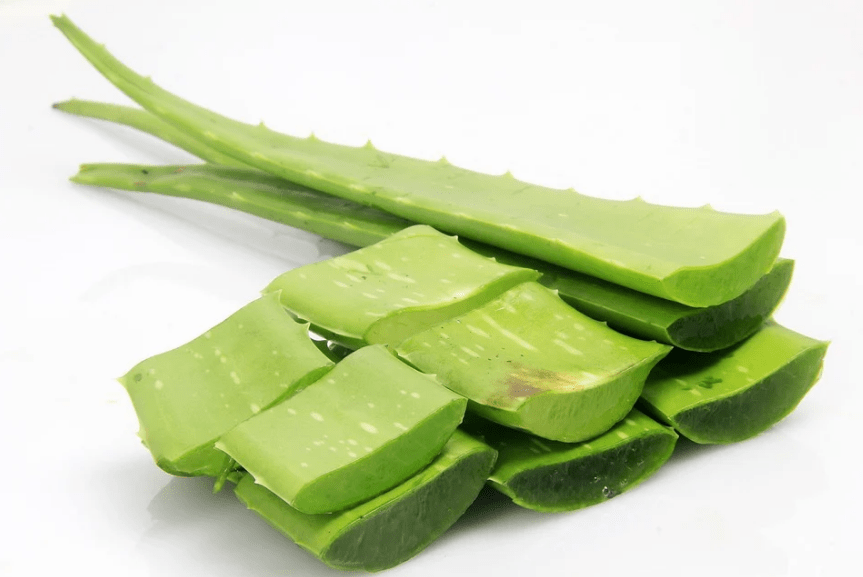If you live with eczema, you know what it’s like to search for relief from your dry, itchy skin. Unfortunately, some skincare solutions will leave your skin feeling drier and even more irritated. In addition to medications, there are options that you can try at home to alleviate your symptoms.
If you are using doctor-prescribed medications, you are using complementary methods to manage your symptoms. If you are using natural therapies instead of conventional medicine, you are using an alternative method. Many people with eczema use practices and products that are outside conventional medicine.
Home remedies cannot cure eczema as it is, but they can manage symptoms and prevent flares. It can reduce redness, dryness, inflammation, and itching.
Here are some of the best natural remedies for eczema:
Aloe vera gel
Aloe vera gel can be used directly from the aloe plant to get the most benefits. People use aloe vera gel for centuries for treating a wide range of skin ailments. One common use of aloe vera is to soothe eczema.
Aloe vera has antibacterial, antimicrobial, wound-healing, and immune system-boosting properties. It can help prevent skin infections, which are most likely to occur when a person has cracked and dry skin. The wound-healing properties of this plant can help soothe broken skin and promote healing.
If you have an aloe plant, use the gel directly from its leaves. But you can also buy aloe vera gel in health stores or skincare stores. Choose products with fewer ingredients, as others can contain alcohol, fragrances, preservatives, and colors that can irritate sensitive skin and worsen eczema symptoms.
Generally, aloe is safe and effective for children and adults. But sometimes, it can cause burning or stinging.
Colloidal oatmeal
Colloidal oatmeal, also known as Avena sativa, contains natural emollients that can ease irritation and calm red and inflamed skin.
Made from finely-ground oats, colloidal oatmeal is available in cream and powder form. Add the colloidal oatmeal powder to lukewarm bathwater and soak for 10 to 15 minutes to help soften rough skin and relieve itching.
It’s also available as a finely ground powder that is easy to use in warm baths. To reap the most benefits, soak your body for 10-15 minutes, then gently pat your skin dry. After your bath, pat your skin dry and apply a thick layer of hypoallergenic moisturizer with high oil content.
A study reports that colloidal oatmeal lotion had antioxidant and anti-inflammatory properties, resulting in improvements in scaling, skin dryness, roughness, and itchiness.
Coconut oil
Coconut oil has antibacterial properties, and it can reduce bacteria in the skin, which helps prevent infection. The lauric acid in coconut oil can keep fungi, bacteria, and viruses from penetrating the skin and causing infection. This is helpful for people with eczema because inflamed skin patches sometimes crack and ooze, allowing bacteria to enter.
Coconut oil’s healthy fatty acids can also add moisture to the skin, which can offer some serious hydration. It can be used as a natural moisturizer.
It’s best to choose virgin or cold-pressed coconut oils, as these products are extracted without the chemicals that can potentially irritate the skin.
Apply coconut oil directly to the skin after bathing and up to several times a day. It’s best for use before bed to keep the skin moisturized overnight. But if you’re allergic to coconuts, you must not use coconut oil.
Apple cider vinegar
Apple cider vinegar is a common home remedy for different conditions, including skin disorders. Research regarding ACV and eczema is pretty limited, but some experts theorize that adding two cups of ACV to a lukewarm bath can help ease itching and discomfort. The National Eczema Association reports that it can help with the condition.
How does it help? Eczema happens when the acidic barrier of the skin doesn’t function the way it’s designed to, making it prone to dryness and irritation. Since ACV is mildly acidic, adding it to the bath can temporarily restore healthier acid levels in the skin. In short, it can balance the skin’s acidity levels.
To use it in a warm bath soak, add two cups of ACV to a warm bath, soak it for 15 to 20 minutes, and rinse the body thoroughly after. Don’t forget to moisturize within a few minutes of leaving the tub.
To use apple cider vinegar in a wet wrap:
- Mix a cup of warm water and a tablespoon of ACV.
- Apply the solution to gauze or cotton, and place it on top of the affected area.
- Cover the dressing in clean cotton fabric, then leave it on for three hours.
However, you may use it with caution, as the acids in the vinegar may cause damage to soft tissue.
Sunflower oil
Extracted from sunflower seeds, sunflower oil can boost the skin’s barrier function, helping it retain moisture. By protecting the skin’s outer layer, it can help keep moisture in and bacteria out. It also hydrates the skin to relieve itching and inflammation.
After bathing or while your skin is still damp, apply sunflower oil to hydrate the skin and relieve itching and inflammation. It can be applied undiluted directly to the skin.
Evening primrose oil
Evening primrose oil comes from the evening primrose plant and is designed to soothe irritated skin. When taken by mouth, it’s used to treat systemic inflammatory conditions like eczema. It contains omega-6 fatty acids and gamma-linolenic acid, which can play a role in preventing inflammation in the body.
However, studies on evening primrose oil in regards to the effectiveness for eczema are mixed. Even so, many people claim it helps reduce eczema symptoms without negative side effects.
Tea tree oil
Tea tree oil is derived from the leaves of the Melaleuca alternifolia tree. People often use tea tree oil to help with skin problems, including eczema. Tea tree essential oil must be diluted before use on the skin. Try mixing it with olive oil, coconut oil, or almond oil, then apply the solution. You can also find products that include tea tree oil in a diluted form.
Honey
Honey is a natural anti-inflammatory and antibacterial agent, and people are using it to heal wounds for centuries. This sweetener can help heal the wounds in your eczema and boost immune system function, which means it can help ward off infections. When applied directly to the affected area, honey can help prevent infections while moisturizing the skin to speed up healing. You can opt for Manuka honey products that are designed for wound care and skin applications.
Bleach baths
Bleach baths may sound like the last thing an eczema-prone, sensitive skin needs. But if your eczema is worsened by a bacterial infection, bleach baths can help. A small amount can kill bacteria on the skin that leads to irritation, itching, and infection. Bleach can kill bacteria on the skin’s surface, including S. aureus, which causes staph infections. It also helps restore the microbiome of the skin’s surface.
The key to making bleach bath successful is getting the amount right. Mix ¼ to ½ of bleach in a full bathtub of warm water. Full means the tub is filled with water to the overflow drainage hole. Soak for 10 minutes, and rinse your skin with plain warm water before patting it dry. Don’t take bleach baths every day to avoid drying your skin. Twice or thrice a week is plenty.
Humidifier
Dry indoor air can make skin feel parched, especially during the winter. A humidifier can add moisture to the air and help you feel more comfortable. Have a humidifier in any room where you spend a lot of time to keep your skin from drying even further.
Acupuncture and acupressure
Acupuncture uses fine needles at specific points in the body to change the flow of energy. Some findings show that acupuncture may bring itch relief. Acupressure is a lot like acupuncture, but it uses physical pressure applied to certain body points rather than using needles. Preliminary studies show that acupressure can help relieve eczema-related dry skin.
Relaxation
Stress is a common trigger to eczema. Though the exact connection is unclear, it’s believed that stress plays a role in developing inflammation. The stress hormone cortisol can also suppress the immune system and cause the skin to become inflamed.
Managing your stress through relaxation can make you feel more comfortable and help reduce eczema flare-ups. Relaxation techniques that may help include:
- Meditation
- Deep breathing
- Visualization
- Music therapy
- Cognitive-behavioral therapy
- Biofeedback
- Yoga
- Tai chi
Hypnosis
Dietary changes
Certain foods can cause inflammation in the body, which can cause eczema flares. It’s best to avoid common inflammatory foods like eggs, dairy, soy, and wheat (or just try to reduce them from your diet). Choose to eat healthy, anti-inflammatory foods such as:
- Fish
- Beans and lentils
- Leafy greens
- Vegetables
- Fruits
- Cinnamon and turmeric

